5, September 2018
Mfum: Where Nigeria, Cameroon border is knotted in marriages 0
Mfum is a town in Cross River State where it is not uncommon to find traders and articulated lorries crossing the lines that separate Nigeria and Cameroon. Items like foods, fruits and petrol are conveyed across the border. But these are not the only things that exchanged between the two countries as one could add marriage ties to the list.
“In this Mfum town, and even the next major town, Ajassor near Ikom in central Cross River State, there have been marriages between Nigerians and Cameroonians,” Miss Adam said. Shanty is a 37 year-old Cameroonian engaged to a Nigerian man for the last five years. According to her, she is one of many cross border couple as inter-marriages have been a thing in that community for long.
A native of Bamenda, Cameroon, Shanty came to Mfum for trade and some profit. She has found love instead. Many Cameroonian women, she said, are dying to marry Nigerian men. She said the interest in Nigerian men is not a recent phenomenon but one that has been entrenched in them. She said this is so because they see Nigerian men as not only very hard working, nice but creative and alert.
Keen to marry her fiancé of five years, Shanty does not see any cultural impediments to the wedding as the traditions across the borders are almost the same.
“The potential suitor or husband will have to approach the woman’s family and obtain a list of items required for the traditional marriage,” she said. “When the marriage has been sealed, the offspring from it will be Nigerian. It is the same thing if a Cameroonian man marries a Nigerian woman, the offspring will be called Cameroonians.”
One Nigerian man who thinks he knows the reason for the interest from Cameroonian women is Mr. Enagu Ojiang, Chairman of the task force committee of the Nigeria Vegetables Buyers Association at the Nigeria/Cameroon border. The association regulates imports of fruits and vegetables, especially tomatoes, from Cameroon.
“They think that there is good life, peace and vast opportunities in our country,” he said. “Therefore, their women mostly chase our men. Their men, too, do. Of course, you can trust, our men have also found love from Cameroon.”
Admitting that this was not a new trend, Ojiang said there are mutual benefits in such unions. “Anyhow, it is the Cameroonian woman that really benefits. They want to come to Nigeria,” he said. As for the benefits on the Nigerian side, he said, “Our boys would take advantage of it because they will use the Cameroonian women to import much needed goods like fruits and vegetables from Cameroon.”
He also thinks that the disturbances in Southern Cameroon, where there is a secessionist campaign might have helped push up the numbers of those interested in marrying into Nigeria. But Shanty insists that the interest predated the crisis.
In a roundabout way, Ojiang admitted this may be the case. “In Ajassor community near Ikom or this Mfum border community, if you can check, there are many Cameroonians who have integrated for a very long time,” he said.
Bishop Ndoma Nyambi, a structural engineer by profession and chairman of Nigerian Society of Engineers in Ikom LGA said that most Cameroonians have since settled in and become Nigerians.
He said many of them have been indigenized and obtained citizenship certificates with attendant benefits.
Nyambi who retired recently from the Cross River State ministry of works said that it can be very difficult to detect them because they, too, are linguistically related as they speak Ejagham, the common language in many border towns, fluently.
“They know the entire history and customs of their host communities and speak with fluency the local dialects. Many of them have since indigenized and are attuned to our system. The only way you can pick them out is when they begin to speak French otherwise it is difficult to distinguish them,” he said.
“I agree there have been many intermarriages between many boundary communities in Nigerian and Cameroon. I think it is to the advantage of both countries. There is yet no international law that prohibits such marriage. It is through these marriages that Cameroonians have inundated our towns. Ikom to Cameroon is only 27 kilometers by car. Such towns like Kalime (formerly called Lasmeto), Ajassor in Etung LGA benefit from these marriages,” he said.
He points at recent developments in the area such as the construction of an expansive international border market, construction of an international road, as facilitated by the World Bank, the avalanche of new housing estates by private individuals as some of the things that might have prompted the increased interest of Cameroonian women in finding love across the border.
This is aided by the increasing border trade in cocoa, plantain, banana, yam, cassava and palm fruits that have brought people across the border into close contact.
The volume of trade between the two countries is high. For instance, a truckload of tomatoes from Cameroon coming into Nigeria is worth over N3 million.
“During what is known as deep season, from June/July, over 40 trucks cross the border in a day. That is roughly N120 Million. As at 12 Noon today, only 8 truckloads of tomatoes have so far crossed the Cameroon border into Nigeria,” he said.
His union, he said, helps in checking smuggling and a similar outfit in Cameroon does its bit as well.
“The way our union operates, there is no way smugglers can succeed through this border or other routes. I can assure that only our union members are involved in this cross border trade. Even in Cameroon, they have similar union that regulates and ensures that only their registered members produce and supply tomatoes. They are licensed by Cameroonian authority to export tomatoes. We, too, have license to import Cameroonian tomatoes to Nigeria. We even have an MoU between the two unions.”
But how much is the current political tension over ongoing agitation for Ambazonia Republic in Cameroon affecting the cross border tomato trade?
“The Amazonian boys usually disturb us and do block the roads so that our trucks could not pass. We have usually negotiated and bribed them with money and baskets of tomatoes. Two weeks ago, for three days they blocked the roads, and that was the reason tomatoes were scarce in Nigeria. Now they have warned that they have declared Mondays as no movement day. And this will tremendously impact against supply of tomatoes in Nigeria,” he said.
While this is distressing news for trade, for lovers there is still optimism since love is not a commodity on the contraband list, chances of marital unions being forged across the border remain extremely high.
Culled from Daily Trust



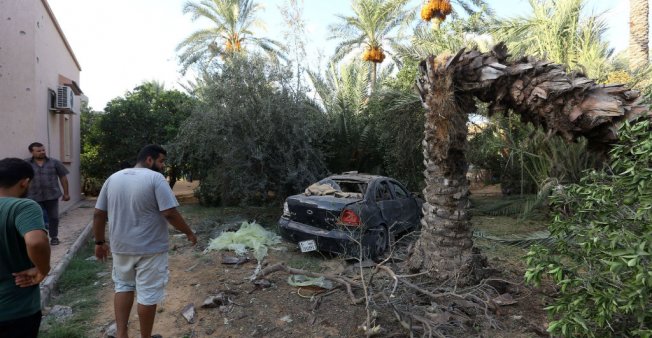

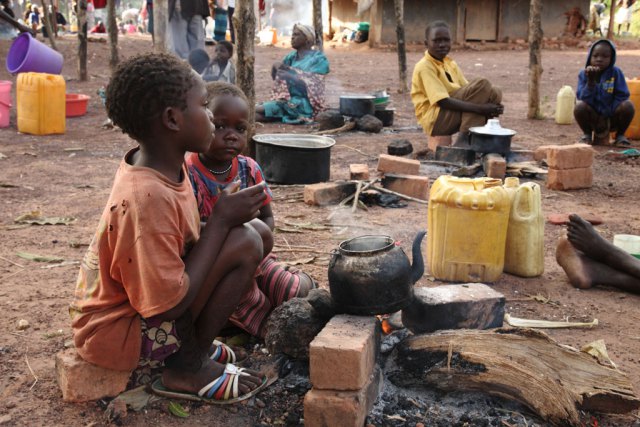
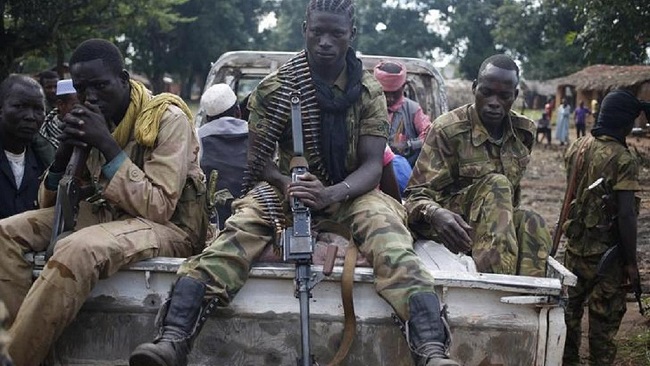
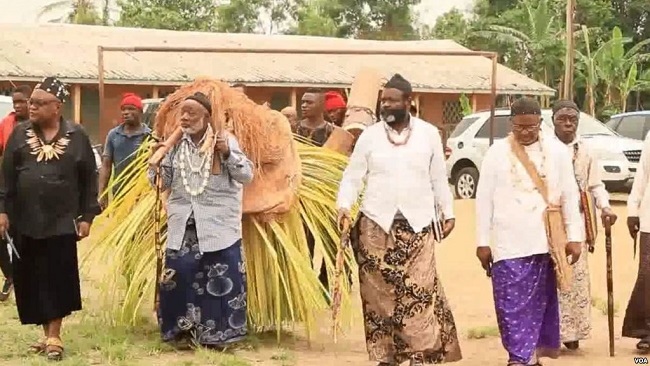
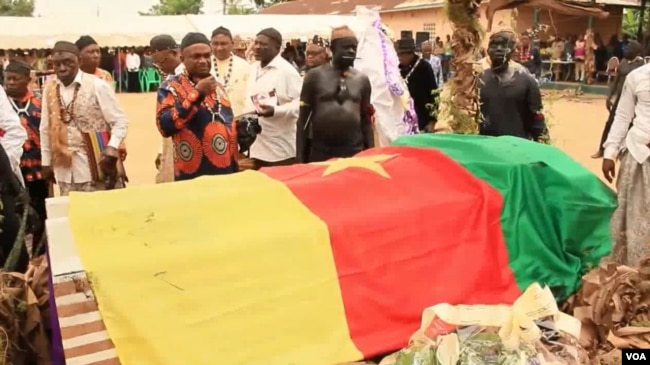
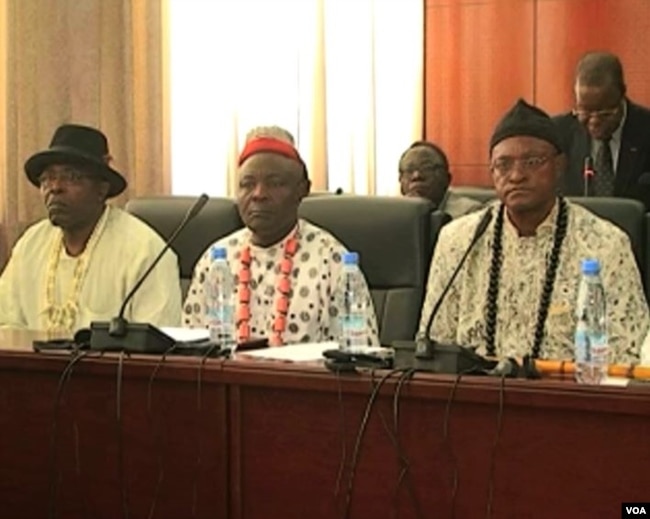




















7, September 2018
Kenya: Gigiri police told to produce Cameroonian 0
The High Court has ordered the Officer Commanding Station at Gigiri police to produce a Cameroonian national who is being detained despite being released on Sh50,000 bail.
Justice Chacha Mwita directed that Peter Doccta be produced before court next week on Wednesday if he will not have been released from police custody.
But the DCI says Doccta’s current detention in police custody is for the purposes of ensuring his safe removal from the country since he is in Kenya unlawfully as a prohibited immigrant.
In a sworn affidavit, police officer Paul Mutethia says Doccta has not been detained incommunicado and is allowed to have access to lawyers.
Doccta was declared to be a prohibited immigrant by late Interior CS Joseph Nkaissery last year. The declaration was done after Doctta was found to be engaged in several criminal activities, including obtaining money by false pretenses from unsuspecting Kenyans. He did so by falsely representing himself as Peter Doccta Longa having magical powers to make money.
“His continued criminal activities of defrauding Kenyans, his presence in Kenya became a threat to the public interest and that of national security. As a result, he was deported back to his Cameroon. The deportation was done within the ambit of the law,” Muteithia says.
But in July this year, Doccta sneaked back into the country and made a false report at Parklands police station to the effect that he had lost his Cameroonian passport.
His passport had been stamped “prohibited immigrant” by the Immigration Department. The DCI now says Doccta’s unauthorised re-entry to Kenya was a clear disregard and violation of the law and should not be protected from the same laws he has sought to violate.
Source: The Star